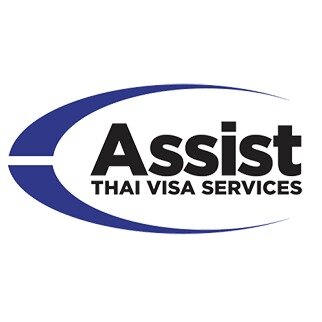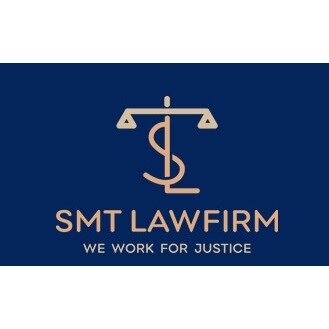Best Natural Resources Lawyers in Chiang Mai
Share your needs with us, get contacted by law firms.
Free. Takes 2 min.
List of the best lawyers in Chiang Mai, Thailand
Legal guides written by SIAM LEGAL INTERNATIONAL:
- Defamation Laws in Thailand: Criminal Charges and Civil Suits
- The State of Thailand’s Long-Term Resident (LTR) Visa Program in 2025
- The Penalties Of Not Filing Your Income Tax Return As A Foreigner In Thailand
About Natural Resources Law in Chiang Mai, Thailand
Chiang Mai, located in Northern Thailand, is renowned for its diverse natural landscapes, including forests, rivers, and mountainous regions. Natural Resources Law in this region is designed to manage and protect these valuable resources, ensuring sustainable use and environmental conservation. Legal frameworks focus on areas such as water rights, land use, forest conservation, and mineral resources. Regulations are crucial for maintaining the balance between development and conservation, supporting both the local economy and the well-being of the environment.
Why You May Need a Lawyer
Individuals and businesses may require legal assistance in natural resources for various reasons:
- Land Use Disputes: Issues regarding land development, property rights, and usage can arise, especially in areas near protected zones or forests.
- Environmental Compliance: Companies involved in agriculture, mining, or construction might need advice to ensure they comply with environmental laws and regulations.
- Water Rights: Legal advice may be needed to navigate disputes over water usage, particularly for agricultural purposes.
- Forest Conservation: Navigating permits and regulations for activities near or in forested areas, ensuring adherence to conservation policies.
- Regulatory Approvals: Assisting in obtaining necessary governmental permits for natural resource extraction or utilization.
Local Laws Overview
Several key legal aspects govern the use and management of natural resources in Chiang Mai:
- Environmental Protection Act: Establishes guidelines for the conservation and management of the environment, including controls over pollution and resource use.
- Forestry Act: Regulates activities within forest areas, including logging and land conversion, focusing on sustainable practices.
- Land Code: Governs the ownership, transfer, and use of land, with specific implications for agricultural and forest lands.
- Mineral Act: Manages mineral exploration and extraction, ensuring activities are environmentally sound and legally compliant.
- Water Resources Act: Addresses the allocation and use of water resources, crucial for agricultural and industrial applications.
Frequently Asked Questions
What are the main natural resources in Chiang Mai?
Chiang Mai's primary resources include its forests, water bodies, and minerals, all of which are key to its economy and ecological health.
Do I need a permit for land development in Chiang Mai?
Yes, land development often requires permits, especially if it affects forest areas or involves significant construction activities.
What should I do if I believe my water rights are being violated?
Consult a local natural resources lawyer who can help assess your situation and take appropriate legal action if necessary.
Are environmental impact assessments required for new projects?
Yes, projects likely to affect the environment must often undergo an environmental impact assessment before receiving approval.
Who regulates mining activities in Chiang Mai?
The Department of Primary Industries and Mines oversees mining operations, ensuring they comply with national and regional regulations.
How can I stay compliant with local conservation laws in my business operations?
Consider engaging a lawyer specializing in environmental law to guide your business in complying with conservation regulations adequately.
What actions can be taken against illegal logging?
Report illegal logging activities to the local forestry department. Legal actions can also be initiated through local legal channels.
Can foreigners own land in Chiang Mai?
Foreigners are generally not allowed to own land outright in Thailand; however, there are legal mechanisms, such as leaseholds which can be explored.
What are the penalties for violating environmental laws?
Penalties can range from fines and project shutdowns to imprisonment, depending on the severity of the violation.
How can I verify if my property is in a conservation area?
Check with the local land office or consult a lawyer to determine whether your property is situated in a conservation zone.
Additional Resources
The following resources can be helpful for individuals seeking advice or more information related to natural resources in Chiang Mai:
- Department of National Parks, Wildlife and Plant Conservation
- Royal Forest Department
- Ministry of Natural Resources and Environment
- Environmental litigation NGOs operating in Northern Thailand
- Local legal practitioners specialized in natural resources and environmental law
Next Steps
If you find yourself in need of legal assistance concerning natural resources in Chiang Mai, consider these steps:
- Research: Begin by understanding the basic legal framework and any specific laws relevant to your issue.
- Consultation: Set up meetings with local legal experts specializing in natural resources for an initial consultation.
- Documentation: Gather all relevant documentation and information to provide to your lawyer, such as permits, land deeds, and correspondence.
- Legal Representation: Engage a lawyer who can represent your interests and navigate the complexities of local and national laws effectively.
- Follow-up: Stay actively engaged with the legal process and follow your lawyer’s advice for compliance and resolution.
Lawzana helps you find the best lawyers and law firms in Chiang Mai through a curated and pre-screened list of qualified legal professionals. Our platform offers rankings and detailed profiles of attorneys and law firms, allowing you to compare based on practice areas, including Natural Resources, experience, and client feedback.
Each profile includes a description of the firm's areas of practice, client reviews, team members and partners, year of establishment, spoken languages, office locations, contact information, social media presence, and any published articles or resources. Most firms on our platform speak English and are experienced in both local and international legal matters.
Get a quote from top-rated law firms in Chiang Mai, Thailand — quickly, securely, and without unnecessary hassle.
Disclaimer:
The information provided on this page is for general informational purposes only and does not constitute legal advice. While we strive to ensure the accuracy and relevance of the content, legal information may change over time, and interpretations of the law can vary. You should always consult with a qualified legal professional for advice specific to your situation.
We disclaim all liability for actions taken or not taken based on the content of this page. If you believe any information is incorrect or outdated, please contact us, and we will review and update it where appropriate.





![Legal & Business Consultancy in Chiang Mai [LBC CHIANGMAI]](https://lawzana.com/storage/firms/2674/16209701614886.jpg)










